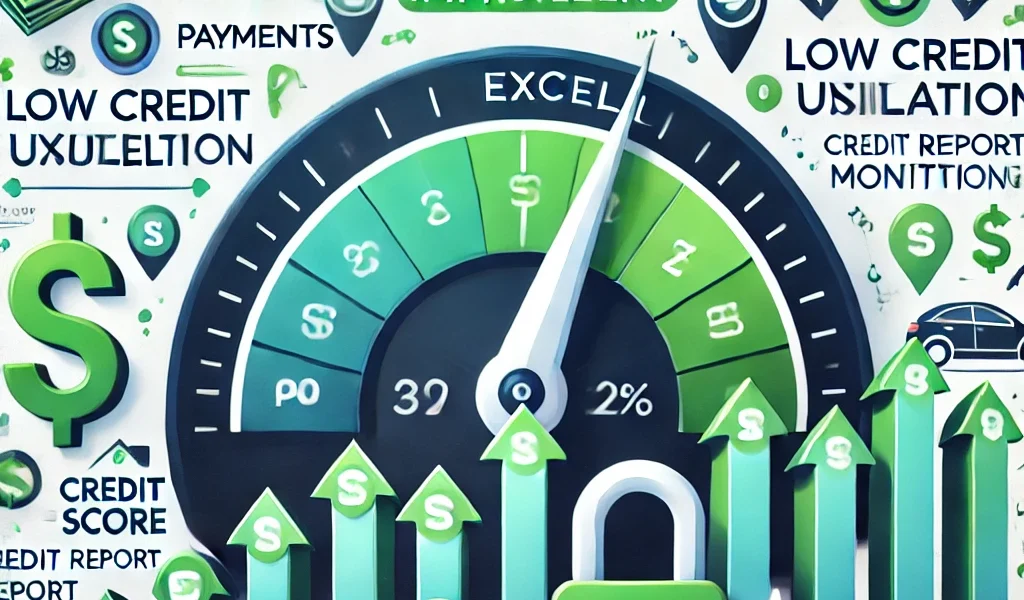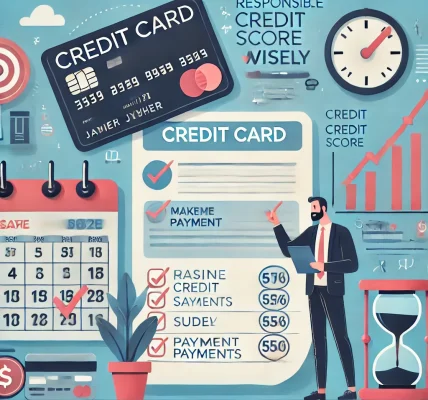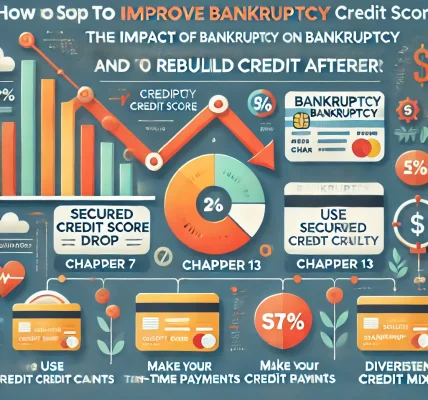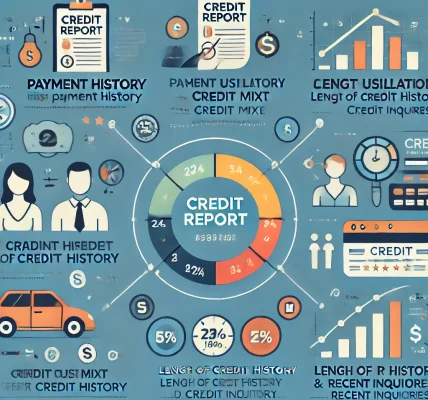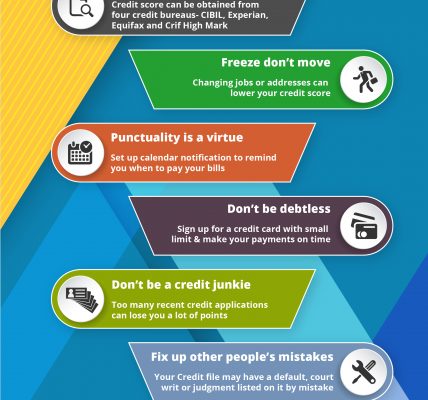Introduction
Your credit score plays a crucial role in determining your financial health. Whether you’re applying for a loan, renting an apartment, or even getting a job, a strong credit score can open doors to better financial opportunities. But if your credit score is less than ideal, don’t worry—there are actionable steps you can take to improve it quickly.
This guide will walk you through the best hacks to boost your credit score efficiently while staying legally compliant.
Understanding Your Credit Score
Before jumping into hacks, it’s important to understand the factors that influence your credit score. The most commonly used credit scoring model is FICO, which evaluates your creditworthiness based on the following:
- Payment History (35%) – Making on-time payments is the most significant factor in your score.
- Credit Utilization (30%) – The percentage of your credit limit you’re using.
- Length of Credit History (15%) – The age of your oldest and newest accounts.
- Credit Mix (10%) – The variety of credit types (credit cards, loans, mortgages).
- New Credit Inquiries (10%) – How often you apply for new credit.
Understanding these factors allows you to take targeted actions that have the most impact.
1. Pay Your Bills on Time – Every Time
One of the fastest ways to improve your credit score is to never miss a payment. Since payment history accounts for 35% of your score, consistent on-time payments can significantly boost your rating.
✅ Hacks to Stay on Top of Payments:
- Set up automatic payments for at least the minimum due amount.
- Use reminders or budgeting apps to track due dates.
- Negotiate due dates to align with your payday for better cash flow.
2. Lower Your Credit Utilization Ratio
Credit utilization measures how much of your available credit you’re using. Experts recommend keeping it below 30%, but under 10% is ideal for a faster credit score boost.
✅ Ways to Lower Credit Utilization:
- Pay down existing balances to reduce your credit usage.
- Request a credit limit increase from your bank (without taking on new debt).
- Use multiple credit cards and distribute spending across them.
⚠️ Caution: Avoid maxing out credit cards, as high utilization can drastically lower your score.
3. Check Your Credit Report for Errors
Errors on your credit report can drag down your score unfairly. Reviewing and disputing inaccurate information is a quick way to boost your score if errors are found.
✅ Steps to Fix Credit Report Errors:
- Get free credit reports from AnnualCreditReport.com.
- Review your reports for incorrect information like:
- Late payments that were actually on time.
- Accounts that don’t belong to you.
- Incorrect balances.
- File a dispute with the credit bureau (Experian, TransUnion, or Equifax) to correct errors.
4. Become an Authorized User
A fast hack to improve your credit is by becoming an authorized user on someone else’s credit card (preferably someone with a good payment history and low credit utilization).
✅ How This Works:
- The primary cardholder adds you to their account.
- Their good credit habits reflect on your report.
- You don’t even have to use the card to benefit.
⚠️ Caution: If the primary user misses payments, it could negatively impact your score, so choose wisely.
5. Diversify Your Credit Mix
Credit bureaus favor individuals who responsibly manage multiple types of credit. If you only have credit cards, consider adding an installment loan (like a credit builder loan or small personal loan) to diversify your credit profile.
✅ How to Use Credit Mix to Your Advantage:
- If you have only credit cards, consider a small loan (and vice versa).
- Open a secured credit card if you have a limited credit history.
- Only take on new credit when necessary—don’t apply for multiple accounts at once.
6. Pay Off Collection Accounts (If Applicable)
Accounts sent to collections can severely damage your credit score. However, negotiating with collection agencies and paying off these debts can help improve your credit profile.
✅ How to Handle Collections:
- Contact the creditor and request a pay-for-delete agreement (some may remove the negative mark upon payment).
- If the debt is inaccurate, dispute it with the credit bureau.
- If you can’t pay the full amount, negotiate a settlement and ask them to report it as “Paid in Full.”
7. Limit Hard Inquiries on Your Credit Report
Every time you apply for credit, lenders perform a hard inquiry on your credit report, which can lower your score by a few points. Multiple inquiries in a short period can signal financial distress.
✅ How to Avoid Unnecessary Hard Inquiries:
- Apply for new credit only when necessary.
- If shopping for a loan, do it within a 14-45 day window to minimize the impact.
- Use pre-qualification tools to check eligibility without a hard inquiry.
8. Keep Old Credit Accounts Open
The length of your credit history impacts 15% of your credit score. Closing old accounts can reduce your credit history length and hurt your score.
✅ What to Do Instead:
- Keep older credit cards open, even if you don’t use them often.
- Use them occasionally for small purchases to keep them active.
- If you must close an account, close your newest accounts first.
9. Use Experian Boost for Instant Score Improvement
Experian offers a free service called Experian Boost, which lets you add utility and phone bill payments to your credit report. This can instantly increase your score if you have a limited credit history.
✅ How to Use Experian Boost:
- Sign up for free on the Experian website.
- Link your bank account to track bill payments.
- Get an immediate credit score update.
10. Build Positive Credit Habits for Long-Term Success
Improving your credit score isn’t just about quick fixes—it’s about building strong financial habits that last.
✅ Best Practices for Maintaining a High Credit Score:
- Always pay your bills on time.
- Keep your credit utilization low.
- Regularly monitor your credit report.
- Use credit responsibly and avoid unnecessary debt.
Conclusion
Improving your credit score quickly requires a strategic approach and consistent effort. While some changes—like disputing errors, lowering credit utilization, and using Experian Boost—can yield immediate results, long-term success comes from responsible credit management.
By following these hacks, you can build and maintain a strong credit profile, opening the door to better financial opportunities.
Legal Disclaimer: This article is for informational purposes only and does not constitute financial or legal advice. Always consult a financial expert before making credit-related decisions.
